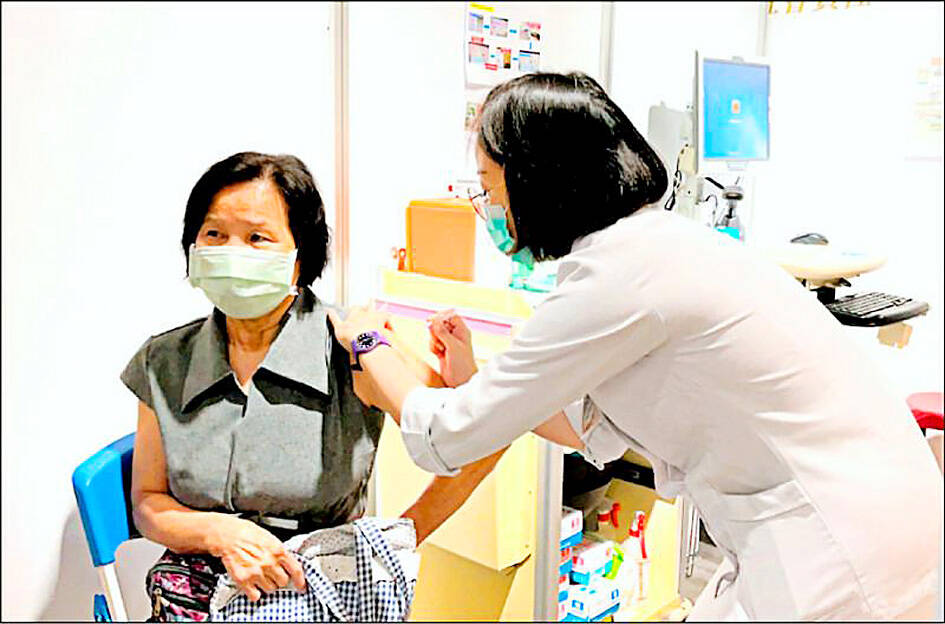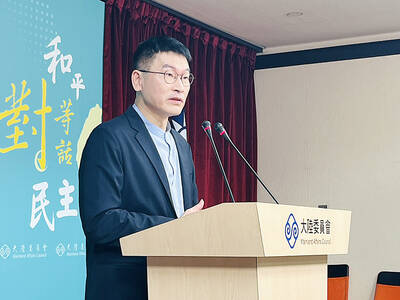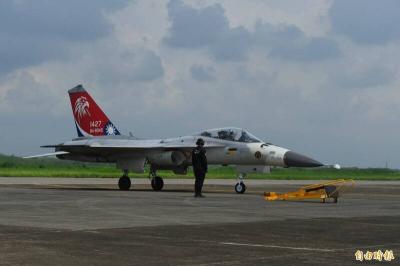A new flu vaccine is to be available for free to certain residents in Taiwan starting on Oct. 1, the Centers for Disease Control (CDC) said yesterday.
At a news briefing, CDC spokesperson Tseng Shu-hui (曾淑慧) said the new trivalent flu vaccines were introduced following WHO guidance to replace the quadrivalent version, removing the B/Yamagata strain, which has not caused outbreaks since March 2020.
Elementary, high-school and first-to-third grade junior college students can receive their shots at school once their parents have signed an online consent form, Tseng said.

File photo: Taipei Times
For the new program, the government purchased more than 6.86 million doses of flu vaccine from five manufacturers, with Taiwan’s Adimmune Corp supplying 47.5 percent, CDC data showed.
As in recent years, Taiwan is to launch its free vaccination program ahead of the annual flu season, which usually begins in November, peaks over winter and winds down in March.
The program is to be carried out in two phases.
In the first phase, eligible groups include minors from six months old through senior-high school; seniors aged 65 and over; medical workers; people with high-risk, chronic, rare or serious diseases or severe injuries; pregnant women; parents of babies under six months old; and employees at preschools and childcare centers.
During this phase, free vaccines would also be available to nursing home residents and workers, medical and public health personnel, people working in poultry or livestock farming, and animal quarantine staff.
The second phase is to begin on Nov. 1, when people aged 50 to 64 would also be eligible for a free shot, the CDC said.

LOW RISK: Most nations do not extradite people accused of political crimes, and the UN says extradition can only happen if the act is a crime in both countries, an official said China yesterday issued wanted notices for two Taiwanese influencers, accusing them of committing “separatist acts” by criticizing Beijing, amid broadening concerns over China’s state-directed transnational repression. The Quanzhou Public Security Bureau in a notice posted online said police are offering a reward of up to 25,000 yuan (US$3,523) for information that could contribute to the investigation or apprehension of pro-Taiwanese independence YouTuber Wen Tzu-yu (溫子渝),who is known as Pa Chiung (八炯) online, and rapper Chen Po-yuan (陳柏源). Wen and Chen are suspected of spreading content that supported secession from China, slandered Chinese policies that benefit Taiwanese and discrimination against Chinese spouses of

PROMOTION: Travelers who want a free stopover must book their flights with designated travel agents, such as Lion Travel, Holiday Tours, Cola Tour and Life Tours Air Canada yesterday said it is offering Taiwanese travelers who are headed to North America free stopovers if they transit though airports in Japan and South Korea. The promotion was launched in response to a potential rise in demand for flights to North America in June and July next year, when the US, Canada and Mexico are scheduled to jointly host the FIFA World Cup, Air Canada said. Air Canada offers services to 13 of the 16 host cities of the tournament’s soccer games, including Toronto and Vancouver; Mexico City, Guadalajara and Monterrey in Mexico; Atlanta, Georgia; Boston; Dallas; Houston;

ALIGNED THINKING: Taiwan and Japan have a mutual interest in trade, culture and engineering, and can work together for stability, Cho Jung-tai said Taiwan and Japan are two like-minded countries willing to work together to form a “safety barrier” in the Indo-Pacific region, Premier Cho Jung-tai (卓榮泰) yesterday said at the opening ceremony of the 35th Taiwan-Japan Modern Engineering and Technology Symposium in Taipei. Taiwan and Japan are close geographically and closer emotionally, he added. Citing the overflowing of a barrier lake in the Mataian River (馬太鞍溪) in September, Cho said the submersible water level sensors given by Japan during the disaster helped Taiwan monitor the lake’s water levels more accurately. Japan also provided a lot of vaccines early in the outbreak of the COVID-19 pandemic,

The US approved the possible sale to Taiwan of fighter jet spare and repair parts for US$330 million, the Pentagon said late yesterday, marking the first such potential transaction since US President Donald Trump took office in January. "The proposed sale will improve the recipient's capability to meet current and future threats by maintaining the operational readiness of the recipient's fleet of F-16, C-130," and other aircraft, the Pentagon said in a statement. Trump previously said that Chinese President Xi Jinping (習近平) has told him he would not invade Taiwan while the Republican leader is in office. The announcement of the possible arms